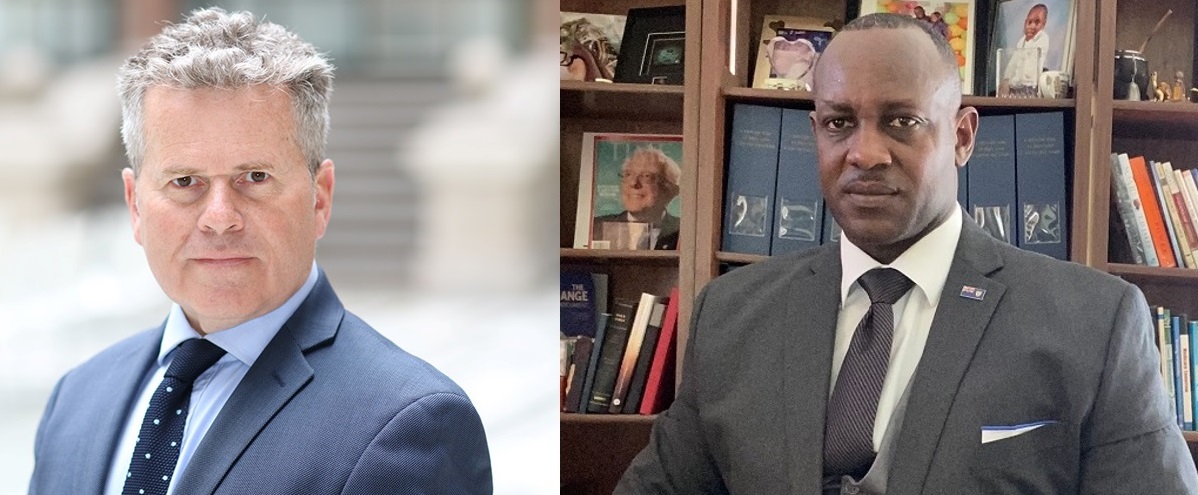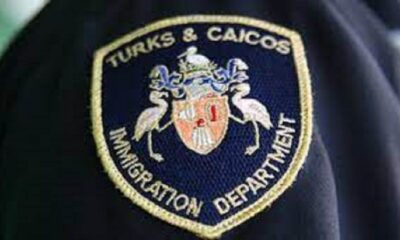By Deandrea Hamilton
Editor
#TurksandCaicos, March 11, 2022 – On Thursday, the Leader of the Opposition in the Turks and Caicos Islands rose up with a bold, provocative question and statement challenging the motive and meaning of the Governor’s two appointments to the House of Assembly.
“While both Honorable members are more than cable of functioning in the position, and have being given strong representation on national issues, and one is also my cousin; appointments made along these Ethnic lines comes as a slap in the face, not only to myself, but also to the majority of the Turks & Caicos Islanders. The appointment of any member to our House of Assembly, with ethnicity and or place of birth being one of the major factors was completely wrong and perhaps a cause for great concern given our current social context.”
The issue resurfaces after one year and one month of a new make up in the House of Assembly, but emerges following the last debate in parliament where some took exception to statements made by Hon Harold Charles and Governor Nigel Dakin in relation to amendments to the Immigration Ordinance.
In a statement issued following his presentation in the House yesterday, Astwood says: “The Turks & Caicos Islands is, and has been, a melting pot of nations for a long time and our Caribbean neighbors are certainly represented in our citizen population. However, this representation has never been called into question until recent times. Particularly, through the intentional appointment of members who the British Government identifies as representing the people in our country that are from Haiti and Dominican Republic.”
Edwin Astwood is speaking of Harold Charles and Willin Belliard, both men are Turks and Caicos Islands citizens but hail originally from the island of Hispaniola, home to the DR and Haiti. Both were appointed by the Governor who at the time said: he was constitutionally compelled to ensure shades of opinion were represented in the House with his appointments, he also believed the two men would help relations with the two islands from which they originate.
originate.
Today the Governor issued a statement explaining: “This is an important statement by the Leader of the Opposition and, in terms of its core message, one that I welcome. Anything that commits to the representation of the views of the many, rather than the few, blind to ethnicity, seems to me a good news story and one I have no doubt he will, as a man of his word, see through in terms of actions, as well as words, within the Legislature.”
He referenced his statement of February 24, 2021: “…in every conversation I have, I do not know of a senior politician or informed private citizen, who has given this thought, who does not recognize that the question around unity or disunity, inclusion or exclusion, is a pressing issue here in TCI.
People might not agree on how it should be settled, but they do believe it does need to start to be settled. It is though very hard for an elected politician to talk in these terms publicly because of the strength of feeling it generates from those who elect them. So I hope I can play some part in catalyzing and sustaining that debate over the course of this Parliament through those I appoint.
Whatever the solution is, that comes out of that conversation, it will need to be designed and managed by the Turks and Caicos Islanders– whereby – TCI can build an inclusive society particularly for those who were born here, who have yet to properly integrate, but who clearly are part of these Islands future.”
Astwood said he does not believe the singling out of the nations was necessary as Turks and Caicos Islanders, are already a multiplicity of peoples… he said the them and the they within the TCI is already a part of us.
“Why is there a need for such types of ethnic appointments? Are we to expect appointment form the Philippines and Jamaica next? This can only seek to create further polarization of these individual nationalities within our already fragile social fabric. In so doing, divisions will be created and further separation of our people may occur.
When I see Turks and Caicos Islanders, and hear their family name, I see “our people forge and blend with multiplicity, of race and kind and creed and tongue, united by our goals,” as stated so eloquently in our national song, written by Dr. Rev. Conrad Howell. This is the truth about our Turks and Caicos Islands. Therefore, our Caribbean neighbours, and others, are already represented in our House of Assembly, and already represented in top positions of our government. Hence there is absolutely no need to directly focus on appointing members of certain ethnic origin to the House,” said Hon Astwood in his statement.
In the end, the People’s Democratic Movement Party leader expressed that he believes the appointments were designed to divide and not unite the people.


 TCI News1 week ago
TCI News1 week ago
 News1 week ago
News1 week ago
 Bahamas News5 days ago
Bahamas News5 days ago
 Bahamas News4 days ago
Bahamas News4 days ago
 News7 days ago
News7 days ago
 Caribbean News1 week ago
Caribbean News1 week ago
 Health4 days ago
Health4 days ago
 News1 week ago
News1 week ago
























